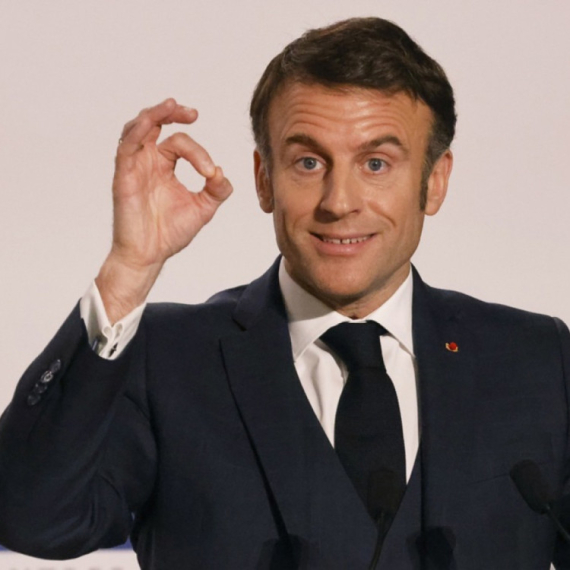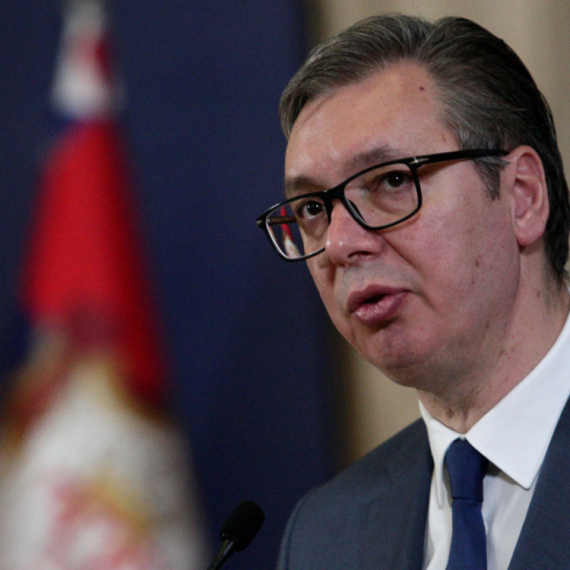France report backs face veil ban
A French parliamentary committee has recommended a partial ban on women wearing Islamic face veils.
Tuesday, 26.01.2010.
12:30

A French parliamentary committee has recommended a partial ban on women wearing Islamic face veils. The committee's near 200-page report has proposed a ban in hospitals, schools, government offices and on public transport. France report backs face veil ban It also recommends that anyone showing visible signs of "radical religious practice" should be refused residence cards and citizenship. The interior ministry says just 1,900 women in France wear the full veils. In its report, the committee said: "The wearing of the full veil is a challenge to our republic. This is unacceptable. We must condemn this excess." The commission called on parliament to adopt a formal resolution stating that the face veil was "contrary to the values of the republic" and proclaiming that "all of France is saying 'no' to the full veil". The report is expected to be followed by the drafting of a bill and a parliamentary debate on the issue. The BBC's Hugh Schofield, in Paris, says the reasoning behind the report is to make it as impractical as possible for women in face veils to go about their daily business. There is also a fear that an outright ban would not only be difficult to implement but would be distasteful and could make France a target for terrorism, our correspondent says. France has an estimated five million Muslims - the largest such population in western Europe. The report follows months of public debate after President Nicolas Sarkozy said all-encompassing veils were "not welcome in France". However, he did not explicitly call for a ban, saying "no one should feel stigmatised" by any eventual law. Opinion polls suggest a majority of French people support a full ban. However, the parliamentary deputies have recommended that - for now - restrictions should be limited. The committee suggests a ban inside public buildings, with those who defy the ban denied whatever services are on offer there - for example state benefits. There are several types of headscarves and veils for Muslim women - those that cover the face being the niqab and the burka. In France, the niqab is the version most commonly worn. The niqab usually leaves the eyes clear. It is worn with an accompanying headscarf and may be worn with a separate eye veil. The burka covers the entire face and body with just a mesh screen to see through. The issue has divided France's political parties. The Socialist opposition has come out officially against a ban, saying it would be difficult to enforce. It says it is opposed to full veils in principle, but some members have expressed fears about any ruling that could stigmatise Muslim women. Meanwhile, the head of Sarkozy's right-wing UMP party has already presented a bill in parliament supporting a full ban on grounds of security.
France report backs face veil ban
It also recommends that anyone showing visible signs of "radical religious practice" should be refused residence cards and citizenship.The interior ministry says just 1,900 women in France wear the full veils.
In its report, the committee said: "The wearing of the full veil is a challenge to our republic. This is unacceptable. We must condemn this excess."
The commission called on parliament to adopt a formal resolution stating that the face veil was "contrary to the values of the republic" and proclaiming that "all of France is saying 'no' to the full veil".
The report is expected to be followed by the drafting of a bill and a parliamentary debate on the issue.
The BBC's Hugh Schofield, in Paris, says the reasoning behind the report is to make it as impractical as possible for women in face veils to go about their daily business.
There is also a fear that an outright ban would not only be difficult to implement but would be distasteful and could make France a target for terrorism, our correspondent says.
France has an estimated five million Muslims - the largest such population in western Europe.
The report follows months of public debate after President Nicolas Sarkozy said all-encompassing veils were "not welcome in France".
However, he did not explicitly call for a ban, saying "no one should feel stigmatised" by any eventual law.
Opinion polls suggest a majority of French people support a full ban.
However, the parliamentary deputies have recommended that - for now - restrictions should be limited.
The committee suggests a ban inside public buildings, with those who defy the ban denied whatever services are on offer there - for example state benefits.
There are several types of headscarves and veils for Muslim women - those that cover the face being the niqab and the burka. In France, the niqab is the version most commonly worn.
The niqab usually leaves the eyes clear. It is worn with an accompanying headscarf and may be worn with a separate eye veil.
The burka covers the entire face and body with just a mesh screen to see through.
The issue has divided France's political parties.
The Socialist opposition has come out officially against a ban, saying it would be difficult to enforce. It says it is opposed to full veils in principle, but some members have expressed fears about any ruling that could stigmatise Muslim women.
Meanwhile, the head of Sarkozy's right-wing UMP party has already presented a bill in parliament supporting a full ban on grounds of security.




















Komentari 5
Pogledaj komentare